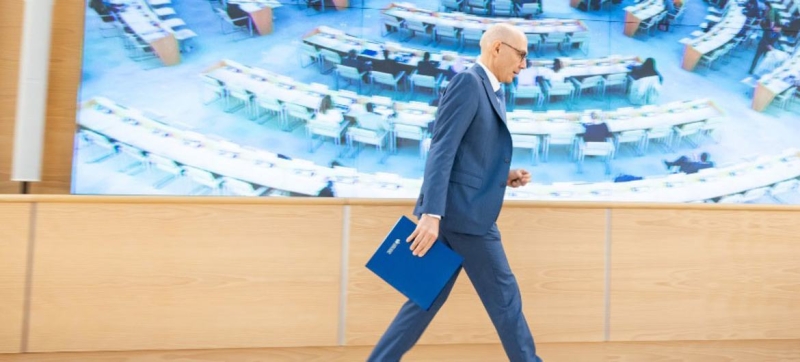
Volkre Türk at the 55th session of the HRC in Geneva. UN alarmed by Uganda’s decision to keep anti-homosexuality law in place Human Rights
UN High Commissioner for Human Rights Volker Türk today expressed dismay at the Ugandan Constitutional Court’s decision to uphold a discriminatory anti-homosexuality law. He called on the authorities to completely repeal it along with other discriminatory laws.
“Since the passage of the anti-homosexuality law last May, approximately 600 people have reportedly had their rights violated based on their actual or perceived sexual orientation or gender identity,” Turk said.
“It must be canceled completely, otherwise, unfortunately, this figure will only increase,” he added.
He stressed that Ugandan authorities must protect the rights and dignity of everyone, regardless of sexual orientation or gender identity. Turk also said Ugandan authorities should repeal Section 145 of the Penal Code, which criminalizes consensual same-sex sexual relations.
Criminalizing consensual same-sex relationships and imposing the death penalty on those who practice them are contrary to Uganda’s obligations under international human rights treaties, Turk said.
Read also:
UN expert: freedom of religion is compatible with respect for the rights of members of the LGBT community
High Commissioner calls on Ugandan authorities to prohibit discrimination on the basis of sexual orientation and gender identity.
“The Constitution of Uganda and its obligations under international human rights treaties require nothing less than equal treatment and non-discrimination for all,” the UN’s chief human rights defender said.
“They [Ugandan authorities – editor’s note] should also amend the equal opportunity law to enshrine the prohibition of discrimination on the basis of sexual orientation, gender identity and expression,” – he said.
The High Commissioner also called on the authorities to ensure an enabling environment for all human rights defenders, including LGBTQ rights defenders, to carry out their legitimate activities, including by providing them with the opportunity to obtain registration and exercise without discrimination their rights to freedom of expression, association and peaceful assembly.
